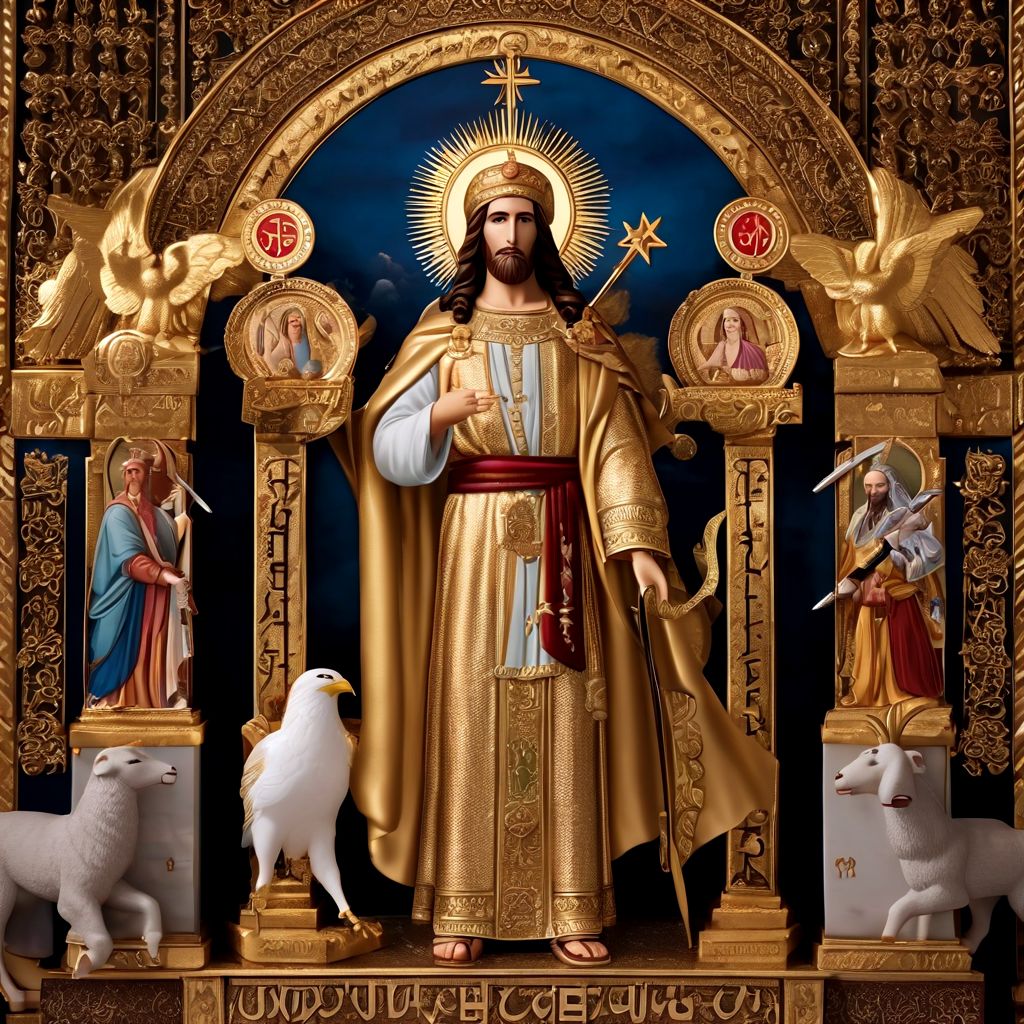Echoes of Righteousness: Connecting Habakkuk’s Cry to the Messianic Voice of Jesus
The book of Habakkuk, nestled among the minor prophets, resonates with a raw and unsettling cry against injustice. In its pages, the prophet grapples with God’s seeming silence amidst rampant violence and societal decay. But within this outcry, some see faint echoes of a future messianic figure, whose voice would rise with similar cries for righteousness, culminating in a victory over the darkness. While Habakkuk does not explicitly mention Jesus, a closer look reveals intriguing thematic connections that offer a fresh perspective on both the prophet’s message and the Messianic hope embodied in Christ.
A Cry for Justice: Habakkuk’s opening verses pulsate with frustration. He witnesses rampant injustice within Judah – violence, corruption, and oppression run rampant, while God appears distant and unmoved. His anguished questions pierce the text: “How long, Lord, must I cry for help, and You do not hear?… Why do You show me iniquity?… You make us like fish captured in a net, like helpless creatures caught in a dragnet” (Habakkuk 1:2-3, 14). This cry resonated through the centuries, finding a potent echo in the life and ministry of Jesus. He too witnessed the plight of the oppressed – the marginalized, the sick, the ostracized – and His heart burned with a similar passion for justice. He denounced exploitation and hypocrisy, speaking out against the religious leaders who had burdened the people with heavy regulations while neglecting the weightier matters of justice and mercy (Matthew 23:23). Just as Habakkuk, Jesus challenged the status quo, advocating for the downtrodden and seeking God’s intervention in the face of human suffering.
Beyond Judgment: In a shocking twist, God reveals His answer to Habakkuk’s cries: He will bring judgment upon Judah through the ruthless Chaldeans. This unexpected answer further deepens the prophet’s distress. How can God use wickedness to punish wickedness? Yet, within this bleak prophecy, a glimmer of hope shines through. Even as judgment falls, God declares: “The righteous will live by his faith” (Habakkuk 2:4). This verse, quoted by the Apostle Paul in Romans and Galatians, becomes a cornerstone of Christian theology, signifying the faith that sustains the righteous even in the midst of darkness. In Jesus, this concept of faithful living takes on a new dimension. He embodies the righteous one who lives not just by earthly rules, but by complete surrender to God’s will. His life on earth, culminating in His death and resurrection, becomes the ultimate expression of faithfulness that conquers darkness and opens the door to eternal life for all who believe.
Transformation of Justice:
#HabakkukEchoes #MessianicHope #JusticeCry #JesusConnection #PropheticForeshadowing #RighteousnessVoice #FaithfulLiving #UltimateVindication #TransformativeJustice #LoveOverRetribution #SacrificialLove #EternalHope #ChristologicalPerspective #JusticeTransformed #HopefulCry #UltimateTriumph #RadicalGrace #FaithInDarkness #PropheticGlimpse #VoiceOfTheMessiah
However, the Messianic connection goes beyond mere thematic parallels. Jesus elevates the concept of justice to a new level. While Habakkuk seeks earthly justice, Jesus points towards a deeper transformation, rooted in love and forgiveness. He teaches about radical grace, extending compassion even to those who inflict suffering. His revolutionary love challenges human notions of justice, urging forgiveness and reconciliation over retribution. This transformed vision of justice finds its ultimate expression in His sacrifice on the cross, where He takes upon Himself the penalty for our transgressions, offering complete forgiveness and reconciliation with God.
The Cry Endures: While Habakkuk’s context differs from Jesus’ life centuries later, their shared cries for justice resonate across time. Both were deeply burdened by the suffering they witnessed, both questioned God’s seeming silence, and both ultimately looked to God for ultimate vindication. However, where Habakkuk found hope in individual faithfulness, Jesus brought about a transformative vision of justice through love and sacrifice.
Looking through this lens, Habakkuk’s book ceases to be merely a cry of despair. It becomes a prophetic foreshadowing of a hope to come, a glimpse into the ultimate victory of good over evil, embodied in the life, death, and resurrection of Jesus Christ. His voice, like that of Habakkuk, continues to echo through the ages, calling us to embrace righteous living, extend radical love, and trust in the ultimate triumph of God’s justice. In this way, the cries of the prophet find their fulfillment, not in historical judgment, but in the transforming presence of the Messiah, whose voice continues to guide us towards a world where true justice and righteousness reign.


